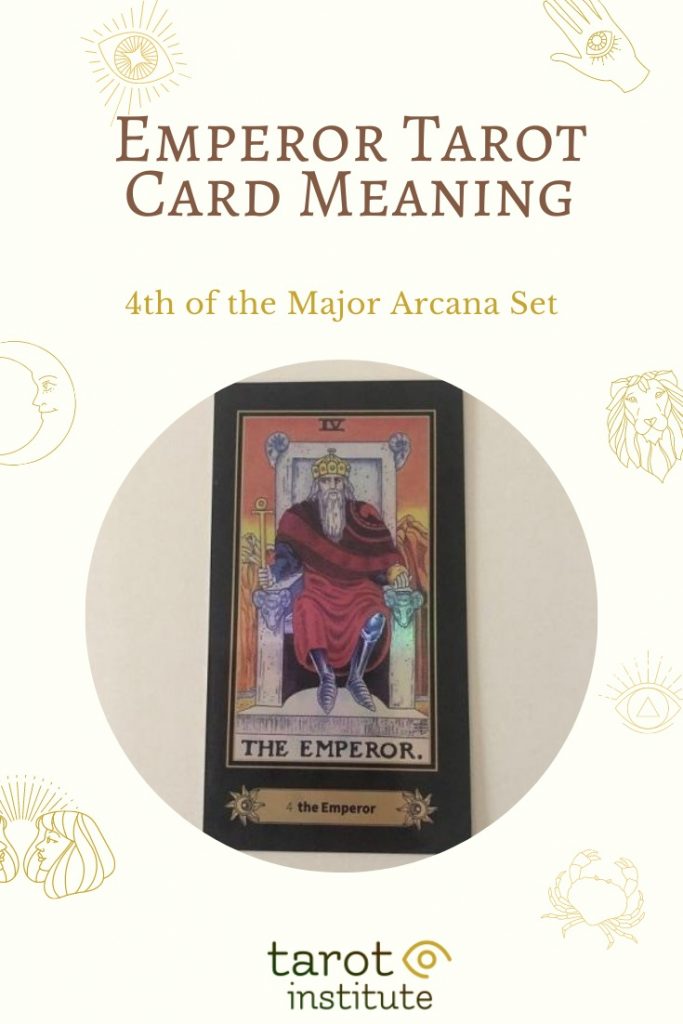The Emperor Tarot card stands as the fourth card in the Major Arcana, embodying authority, structure, and power. Its imagery is steeped in symbolism, often featuring a dignified figure seated upon a grand throne, adorned with armor and a crown, symbolizing mastery and control. The Emperor complicates our understanding of power—does it stem from ruthless domination, or is it rooted in benevolent governance? This duality invites us to ponder how we define authority in our own lives.
Symbolism of the Emperor
At first glance, the Emperor appears formidable. His throne is typically positioned on a barren landscape, suggesting that he derives strength from order amidst chaos. The ram’s heads that frequently appear in his regalia are not just ornamental; they connote Aries, the zodiac sign associated with leadership and initiative. This correlation heightens the notion of taking charge, establishing boundaries, and enforcing rules. But this authority does not exist in a vacuum; it operates within a social structure, posing the question: how do we establish our own authority without infringing on others?
Upright Meaning
When drawn upright, the Emperor symbolizes stability and the establishment of order. He represents a strategic decision-maker, someone who embodies discipline. In personal contexts, this card may suggest that you are assuming a leadership role, whether in your career, relationships, or personal endeavors. It serves as a gentle nudge to take control of a situation that may feel adrift.
The Emperor embodies the archetype of the father figure, highlighting issues related to parental authority, responsibility, and nurturing through boundaries. Yet, this does not imply a lack of compassion; rather, it suggests that true authority often requires a nuanced understanding of love—one that prioritizes the long-term welfare of those under one’s supervision. This raises a challenge: will you wield your authority with compassion, or will you let it slip into tyranny?
Challenges Associated with the Emperor
While the Emperor symbolizes stability and leadership, he also has the potential to embody rigidity and inflexibility. When taken to extremes, this archetype can manifest as a domineering figure resistant to change. This prompts a self-reflective query: are you capable of adapting your authoritative approach in the face of evolving circumstances? In a world characterized by rapid transformation, it is vital to reassess how we wield power and to challenge ourselves to remain open to different perspectives.
Inverted Meaning
When the Emperor card appears inverted, it suggests chaos, tyranny, or ineffective leadership. This card’s reversed position may indicate a struggle for control, where authority is misused or where one feels overpowered. It serves as a stark reminder that absolute power can corrupt absolutely. Individuals embodying this reversed Emperor often face crises of identity or confidence, grappling with feelings of inadequacy in their roles.
The challenge presented here is introspective: if you find yourself in a position of authority that feels oppressive, what steps can you take to empower rather than inhibit? This journey often requires courage and self-awareness, paving the way for transformative growth.
The Emperor in Different Contexts
In matters of career, the Emperor calls upon you to embrace your role as a leader. Whether you are managing a team or steering a project, the essence of this card suggests the need for decisiveness and clarity in your vision. Conversely, in relationships, the Emperor might urge you to examine dynamics of control and emotional balance. Are you dominating the relationship, or are you nurturing it through cooperative governance?
The Emperor’s influence also extends into financial realms, symbolizing authority over monetary resources and encouraging rational decision-making. His presence in a financial reading might encourage you to set boundaries, ensuring that your long-term goals are prioritized over impulsive desires.
The Emperor in Spiritual Context
Spiritually, the Emperor can signify the establishment of a strong foundation for personal growth. It implies the necessity of discipline in one’s spiritual practices and the grounding of lofty ideals in tangible realities. The card may challenge you to figure out how to channel your spiritual authority responsibly and harmoniously with universal laws.
Conclusion
The Emperor Tarot card serves as a multifaceted symbol of power and authority, inviting contemplation on how we exercise influence in our lives and communities. The balance between power and responsibility is a delicate dance, and the card compels us to examine our relationship with authority—both our own and that of others. In a world rife with challenges and uncertainties, the true question remains: will you lead with courage, wisdom, and compassion, or will the burden of authority become a shackle that stifles growth? As you navigate your journey, remember that the essence of the Emperor lies in mastering oneself rather than merely commanding others. The challenge lies not just in authority but in the conscious choice to embody the principles of empathy and integrity alongside power.







Leave a Comment